Valiant Is the Word for Carrie
Cast & Crew
Wesley Ruggles
Gladys George
Arline Judge
John Howard
Dudley Digges
Harry Carey
Film Details
Technical Specs

Synopsis
Carrie Snyder lives on the edge of the Louisiana town of Crebillon, whose residents disdain her because of her "scarlet" past. When she is befriended by little Paul Darnley, whose mother is bedridden, his father whips him and forbids him from seeing her again. Having an unusually strong sense of loyalty and responsibility for a boy, Paul continues to see Carrie and trusts her like a mother. Finally, the townspeople drive Carrie out, and she is forced to abandon Paul for his own good. A few years later, she reads that both of Paul's parents have died and he has been adopted by his uncle. News from a friendly cab driver from Crebillon, however, tells her that Paul was miserable at his uncle's and has been living alone on a houseboat. Carrie comes to take Paul to the city with her, and discovers that he has taken in a little six-year-old girl named Lady, whom he rescued from a train accident. Lady had been on her way to her new adopted parents, who won her in a contest, and anticipating the worst, she refused to get back on the train. Carrie unoffically adopts both children and takes them to the city, where she invests in a cleaning business. Over the years, Carrie's business thrives, and by the time of Paul's graduation from college, she has a chain of cleaners throughout New York. Paul returns home and gets a promising job at a literary agency, but one night, the family's happiness is tainted when Paul accidentally pushes a man to his death on the subway. Overcome with remorse, Paul promises to support the man's sister, Lili Eipper, and brings her to Carrie's home. Lady sees Lili as manipulative and becomes jealous, having been in love with Paul since she was a child. Paul is so caught up with Lili that he fails to say goodbye to Lady when she leaves for college. When Lady comes home one winter weekend, she decides that Paul is in love with Lili, and bitterly marries her schoolchum, Mat Burdon. Carrie is determined to right the wrongs that Lili has wrought on her household and goes to see her, armed with the knowledge that Lili is in love with a doctor who was her cohort in a crime. Lili vows she will do anything to get her lover out of jail, even ruin Paul's life, but agrees to give up on Paul if Carrie gives her $50,000 to help the doctor escape. Carrie agrees, but something goes wrong on the night of the escape; Lili is killed and Carrie is arrested. Although her friends promise to get her the best lawyer, Carrie decides to remain in jail, fearing that a trial will bring out her sordid past and ruin her children's opinion of her. When Paul and Lady visit Carrie in jail, the three "runaways" from Crebillon are reunited again.

Director

Wesley Ruggles
Cast
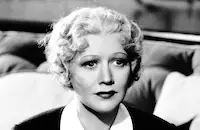
Gladys George

Arline Judge

John Howard
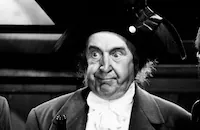
Dudley Digges
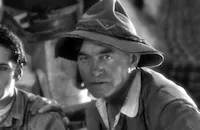
Harry Carey

Isabel Jewell
Jackie Moran
Charlene Wyatt

John Wray
William Collier Sr.

Hattie Mcdaniels
Lew Payton

Maude Eburne
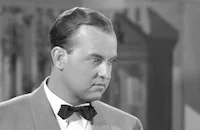
Grady Sutton
Janet Young
Adrienne D'ambricourt
Helen Lowell
Bernard Suss

George F. Hayes

Irving Bacon
Olive Hatch
Nick Lukats
Alfonso Zelaya
Leora Thatcher
John Beck
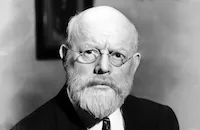
Howard Mitchell
Harry Bates
Tom Manning
Charles W. Hertzinger
Mark Strong
Herbert Heywood
Mildred Booth
Rita Owin
Ralph Malone
Florence Dudley
Francis Morris
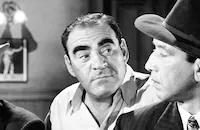
Ralph Dunn
Wally Maher
Charlotte Ogden
Bob Ellsworth
Jack Stoney
Chic Collins
Howard Truesdell
Pat West
Edward Gargan
Frank Hammond
Crew
Travis Banton
Claude Binyon
Hans Dreier
Andy Durkus
Ernst Fegte
A. E. Freudeman
Frederick Hollander
Arthur Jacobson
Don Johnson
Roy Kreuger
William Lebaron
Otho Lovering
Gene Merritt
Boris Morros
Harry Ray
Wesley Ruggles
Leo Tover
Adolph Zukor

Film Details
Technical Specs

Award Nominations
Best Actress
Quotes
Trivia
Notes
The working title was With Banners Blowing. Correspondence in the MPAA/PCA Collection at the AMPAS library indicates that the AMPP was reluctant to approve the story due to the sympathetic portrayal of a former prostitute, Carrie. An April 1936 treatment was rejected by Joseph I. Breen, director of the AMPP. In a letter to Paramount, Breen noted that "before a picture of this kind can be approved by us, it is necessary that you definitely establish: a-that prostitution, per se, is wrong; b-that there be no suggestion of condonation or glorification of a prostitute or of prostitution; c-that prostitution, definitely characterized as wrong, is definitely condemned as wrong by sympathetic characters in your play; d-that there be no details of any kind showing the business of prostitution; and e-that there be ample compensating moral values by way of punishment and stigma." In a letter to Paramount, dated May 7, 1936, Breen cited some specific scenes in the treatment that were objectionable, including a scene in which the members of the city's council are hinted at being Carrie's patrons; a scene in which Darnley whips his son; and a discussion between Carrie and Moresby in which Carrie is made to appear the only sane, sensible and sympathetic person in the town. In a letter to Will H. Hayes, president of the MPPDA, Paramount noted that there was a dispute between one of their officials and Breen. Breen interpreted a comment by a Paramount official as, "If I were to listen to the regulations laid down by your office no pictures could be made on this lot." The Paramount official notes in his letter that he actually said "that under the present ruling by Mr. Breen no studio would be able to tell one of the grandest stories in sacred or profane literature, the story of the 'Magdalene.'" Paramount and Breen apparently resolved their differences, as by the middle of May 1936, the script for the film was approved by Breen. In June 1936, Breen viewed the final print, and noted a few questionable items: "The townswomen who frown on Carrie should not be of the blue-nosed type, but rather, normal, every-day types of American women. Mrs. Wadsworth's speech should not quote her as saying 'in defense' of Carrie and she should not venture her belief 'that such a woman has a place in the social scheme of a community of any size.'" Despite these difficulties, the film was approved by the PCA. A contemporary article in New York Times notes that Pennsylvania censors deleted the scene in which Darnley is whipped by his father. According to an article in New York Times, Paramount originally intended Irene Dunne for the leading role, but she rejected the part. News items and the pressbook note that some scenes were filmed on location at Malibu Lake, CA.

Miscellaneous Notes
Released in United States 1936
Released in United States 1936











